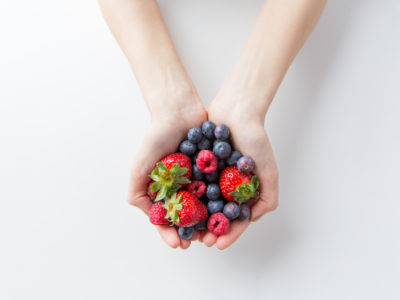In case you need an excuse to go for the Cab Sav at happy hour, we’ve compiled a list of red wine’s health benefits.
Before we go on, however, we should point out that it’s actually resveratrol, a compound found in red grape skin, that has been touted as a powerful anti-inflammatory and antioxidant. Countless studies over the past decade or so have found that this red wine compound can possibly prevent blood clots and reduce bad cholesterol – leading to reduced risk of heart disease. It’s also been linked to helping slow the aging process and may even fight cancer.
But the latest findings around resveratrol is from a new study conducted by Ashok K. Shetty, Ph.D., a professor in the Department of Molecular and Cellular Medicine and director of neurosciences at the Institute for Regenerative Medicine. The study found that the compound may positively impact the hippocampus, which is a part of our brains associated with mood function, memory and learning capability. Shetty’s study concluded that ingesting resveratrol during middle age years may lead to improved memory and mood in later years.
Did I just say it could improve mood? My husband’s going to be pouring me a hefty glass every night from now on!
A potentially even bigger breakthrough is that it may actually help in treating Alzheimer’s disease, according to the Alzheimer’s Drug Discovery Foundation, by fighting the accumulation of beta-amyloid plaques in the brain.
Despite all this, most scientists will agree there still isn’t enough evidence to determine resveratrol’s effectiveness. According to a 2014 study, which analyzed resveratrol’s effect in older Italians from the region of Chianti over 11 years, found that the presence of resveratrol in the older participants’ blood did not appear to lead to less risk of cardiovascular disease and cancer. It also did not appear to be associated with increased longevity, possibly debunking claims that it could keep us youthful.
Other studies point out that resveratrol may not be any more effective in red wine than other foods it is found in. And, in case you’re freaked out about California wines right now, here are some of those other sources of resveratrol:
- Pill Form: Naturally, when pharmaceutical companies heard about the benefits of resveratrol, supplements containing as much as 900 mg of resveratrol started hitting drug store shelves. One thing to be aware of: a 2013 study found that resveratrol appeared to block the benefits of exercise and good diet in men 65 and older.
- Berries: Berries like blueberries, raspberries and mulberries have resveratrol and are a healthy alternative to getting your daily resveratrol dosage.
- Nuts: Walnuts, almonds and hazelnuts offer good amounts of resveratrol, and a small dose of one to two ounces a day is all you need. Peanut butter is also a way to get resveratrol if you prefer your nut intake this way.
- Dark Chocolate: Hershey Center for Health and Nutrition helped conduct a study that found chocolate contains the second highest concentration of resveratrol (next to red wine).
- Red Grapes: Since the resveratrol comes straight from the skin of a red grape, you don’t need to ferment them to get to the goodness.
Regardless of how beneficial you think resveratrol may or may not be, research on the compound has not been able to prove that it is harmful to the body in moderate amounts; and the Mayo Clinic notes that although its benefits have not fully been proven in humans (with most studies on its effectiveness being conducted in laboratory mice), it still shows plenty of promise.
You May Also Like…




